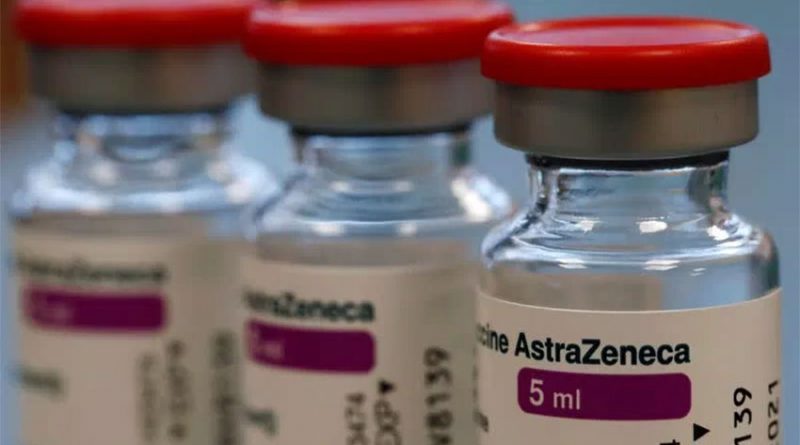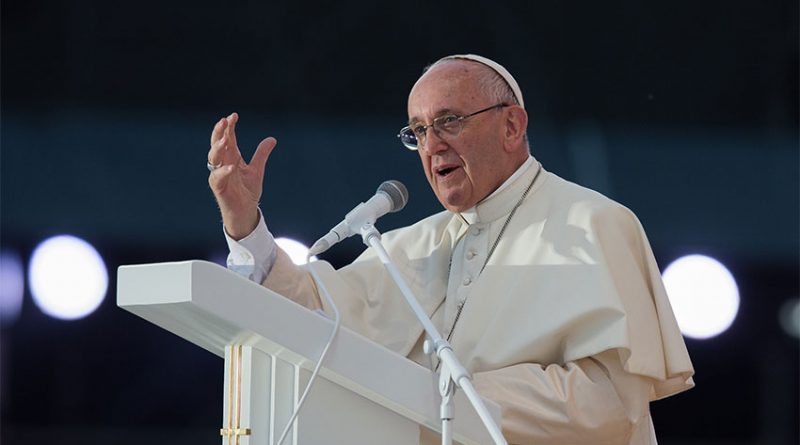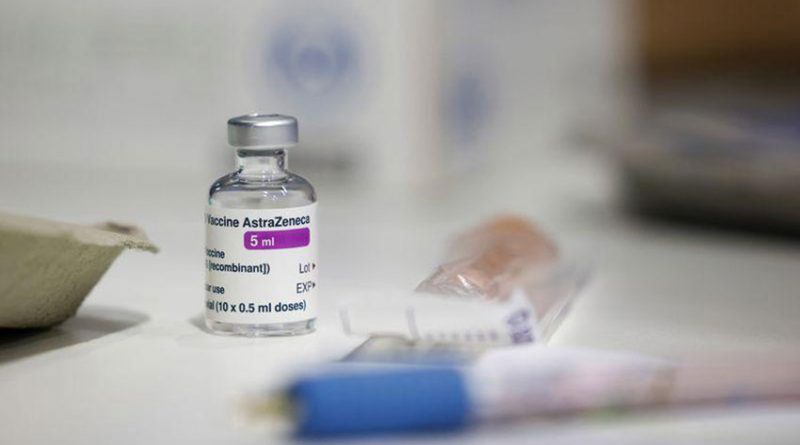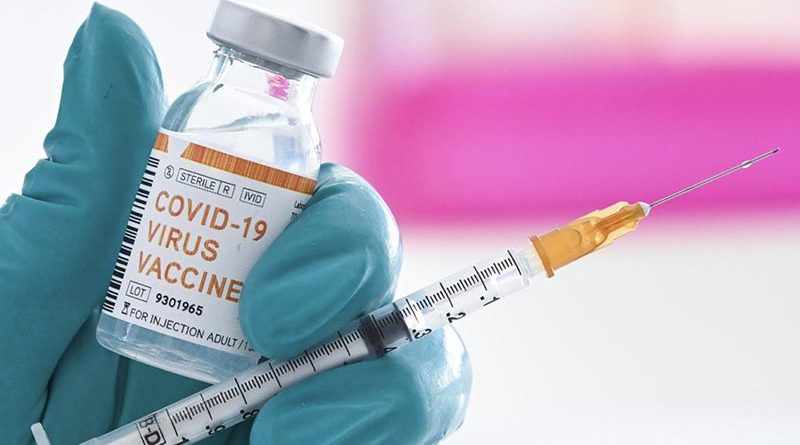NO countries in Africa have refused the AstraZeneca COVID-19 vaccine due to any remaining health concerns, a senior official of the World Health Organization (WHO) has said.
Mariangela Simao, WHO assistant director-general for drug access, vaccines and pharmaceuticals, told a news conference: “It has all returned to normal, we don’t have any countries refusing the AstraZeneca (vaccine) on the African continent.”
WHO senior adviser Bruce Aylward said: “There’s a lot of confidence” in the Astrazeneca Covid-19 vaccine.
Pope Francis yesterday urged people to fight organised crime groups such as the mafia around the world, warning that the criminals were using the COVID-19 pandemic to further enrich themselves.
In December, the Paris-based Interpol police co-ordination issued a global alert warning that organised criminal networks were targeting COVID-19 vaccines. In March, South African police seized hundreds of fake vaccines and arrested four suspects.
“Mafias are present in various part of the world and, taking advantage of the pandemic, they are enriching themselves through corruption,” Francis said, speaking at his Sunday noon address on the day Italy remembers victims of organised crime.
Italian police say crime clans are using the pandemic to buy favour with poor families facing financial ruin, offering loans and food. Mob loan sharks demanding exorbitant interest rates are bailing out businesses hit by the pandemic, police say.
“These structures of sin, mafia structures, are against the gospel and mistake idolatry for faith,” the pope added.
In Italy, many members of organised crime see themselves as part of a religious, cult-like group, invoking the help of saints and using religious figurines or statues in initiation rites.
The southern town of Oppido Mamertina made headlines in 2014 when locals carrying a statue of the Madonna diverted the route of a procession to pause at the home of a mob boss and tilted the statue slightly as if to kneel in a sign of respect.
“Today, let us remember all the victims and renew our commitment against mafias,” Francis said.
In recent years, the Calabria-based Ndrangheta has overtaken Sicily’s Cosa Nostra as the most feared and lucrative Italian crime group, making most of its money from drug trafficking. It has spread throughout the world.
Source - Thomson Reuters Foundation
THE World Health Organization squarely endorsed AstraZeneca’s coronavirus vaccine on Friday, as Thailand joined a number of smaller European countries in suspending the use of the shot because of sporadic reports of blood clots among recipients.
Bulgaria also joined Denmark, Norway and Iceland, which all stopped using the vaccine on Thursday. Austria, Italy, Luxembourg, Estonia, Lithuania and Latvia stopped using certain batches.
“Until all doubts are dispelled…, we are halting inoculations with this vaccine,” Bulgarian Prime Minister Boyko Borissov said.
His health minister, Kostadin Angelov, said a 57-year-old woman had died of heart failure 15 hours after receiving an AstraZeneca shot, but urged those already inoculated to stay calm.
“We do not have any official data that proves a causal connection,” he said.
That line was reinforced by the WHO, which is keenly aware that AstraZeneca’s shot is by far the cheapest and most high-volume launched so far, and set to be the mainstay of vaccination programmes in much of the developing world.
Spokeswoman Margaret Harris said the vaccine was “excellent”.
“It’s very important to understand that, yes, we should continue to be using the AstraZeneca vaccine,” she told a briefing. “All that we look at is what we always look at: Any safety signal must be investigated.”
The EU regulator, the European Medicines Agency (EMA), said on Wednesday that there had been 22 reports of embolisms from blood clots among 3 million people who had received the vaccine – no more than in the general population – but Bulgaria said it wanted to see that guidance in written form.
‘THIS NEEDS TO BE EXPLAINED’
Experts point to the difficulty of putting risks in perspective for a wider public that may be spooked by negative headlines.
In Sicily, where two people died shortly after being vaccinated, the regional health administrator said 7,000 inoculation appointments had been cancelled as a result.
Silvestro Scotti, a family doctor in Naples and head of the Italian Federation of General Practitioners, said he had been bombarded all day with inquiries from people nervous about getting the AstraZeneca shot.
“The crazy thing is that, even if the correlation between the vaccine and blood clots were proved, it would be a rate of 0.007 out of a thousand,” he said.
“To give an example: the birth control pill, which is used widely and doesn’t worry anyone, has a proven risk rate of 0.6 in a thousand. Even in the worst-case scenario, the risk/benefit ratio for this vaccine is extraordinarily favourable. That needs to be explained to people.”
The WHO’s Harris said 268 million doses of COVID-19 vaccines from various developers had been administered worldwide without being shown to have caused a single death.
In France, where distrust of vaccination is long-established, only 43% said they trusted the AstraZeneca shot in a Harris Interactive poll conducted on March 11-12, while 55% said they trusted COVID-19 vaccines in general.
Germany has also had to contend with substantial scepticism, to the extent that Health Minister Jens Spahn suggested that the AstraZeneca shot be given to the police force and army, after some health and other frontline workers baulked at receiving it.
However, German authorities’ main concern has been lack of supply, rather than lack of acceptance, as social and economic restrictions to limit transmission take their toll.
One doctor administering vaccinations in Berlin said recipients were now asking far fewer questions about the vaccine than two weeks ago.
Source – Thomson Reuters Foundation
THE World Health Organization on Friday approved the emergency listing of Johnson & Johnson’s COVID-19 vaccine, giving its seal of approval to expedite use especially in countries with weaker regulatory agencies.
It is the third COVID-19 vaccine after the two-shot regimens of Pfizer/BioNTech and AstraZeneca to receive backing from the WHO, and the first requiring just a single injection.
The listing covers use in all countries, for roll-out of the vaccine facility COVAX and follows the European Medicines Agency (EMA) authorisation announcement on Thursday.
“Every new, safe and effective tool against COVID-19 is another step closer to controlling the pandemic,” WHO Director-General Tedros Adhanom Ghebreyesus said in a statement.
“Emergency use listing is the green light for a vaccine to be procured and rolled out by COVAX,” he told a news conference.
WHO is convening its strategic advisory group of immunization experts next week to draw up recommendations on its use, he added.
“But the hope offered by these tools will not materialize unless they are made available to all people in all countries,” he said.
The WHO also welcomed the one-shot administration as facilitating vaccination logistics.
WHO senior adviser Bruce Aylward said that the Johnson & Johnson vaccine, which does not require an ultracold chain, was “even better suited to some of the countries that are worst-hit, affected by the pandemic”.
COVAX, co-run with the Gavi vaccine alliance, has an agreement for more than 500 million doses of the J&J vaccine, Aylward said.
“What we are trying to do is work with the company to bring that forward as early as possible. And we are hoping by at least July that we have access to doses that we can be rolling out, if not even earlier.”
J&J’s chief scientist Paul Stoffels told Reuters on Thursday the company expects to produce up to 3 billion doses https://www.reuters.com/article/idUSKBN2B32Y0 of the vaccine next year, after previously pledging to deliver 1 billion globally by the end of 2021.
The WHO said that, under an emergency-use listing, companies have to commit to generating further safety and efficacy data to enable full licensing.
Source – Thomson Reuters Foundation




